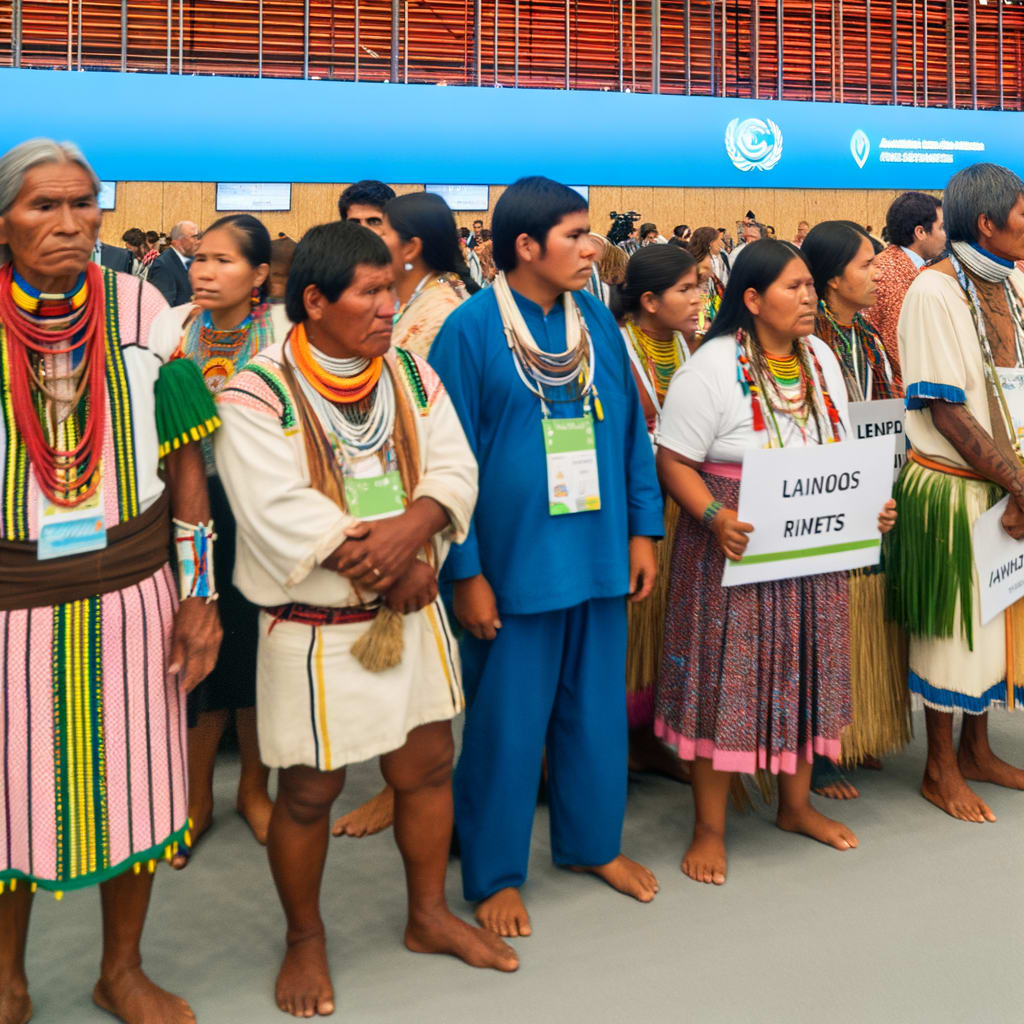Indigenous Activists Storm COP30 Climate Summit in Brazil
BELEM, BRAZIL - Dozens of indigenous protesters made a dramatic entrance into the COP30 climate summit venue in Belem, Brazil. Armed with batons and clad in traditional indigenous attire, the protesters clashed with security guards, demanding immediate action on climate change and forest protection.
A Demand for Climate Action and Land Rights
The protesters, encompassing a wide range of indigenous activists, stormed the UN compound where thousands of delegates from around the globe gathered for this year's UN climate summit. Amid the chaos, some were seen waving flags bearing slogans advocating for land rights, while others carried signs with the bold message, Our land is not for sale,
as reported by Al Jazeera English.
The confrontations occurred late on November 11, according to The Hindu, coinciding with the exit of attendees from the summit venue. As Sky News World reports, the protesters, armed with batons, managed to force their way inside the venue, leading to heightened tensions and violent clashes.
Clashes with Security
Demonstrators broke through security lines, laying outside the summit venue covered in white sheets in a symbolic display of honour for killed activists as per Al Jazeera English. Security agents of the United Nations climate conference were met with shouts and demands for access from the protesters as noted by South China Morning Post and Japan Times.
Deutsche Welle and Le Monde both highlight the brief yet impactful forceful entry of the protesters, emphasizing the clashes with security that ensued. BBC News further noted that some protesters were in traditional indigenous dress, a significant detail underscoring the cultural and environmental stakes intrinsic to their protest.
Calls for Inspiration from Indigenous Peoples
The storming of the COP30 climate summit comes as Brazil's leader, Lula, called on the summit participants to be 'inspired' by the Indigenous peoples. As reported by Al Jazeera English, the protesters voiced their opposition to agribusiness, oil exploration, illegal mining, and illegal logging at the UN climate summit.
Current Status and Concluding Remarks
The protest at the COP30 climate summit in Belem, Brazil has intensified the spotlight on the environmental and climate issues faced by indigenous communities. As negotiations continue at the summit, the dramatic protests by indigenous activists underscore the urgency and human rights dimensions inherent in the global climate crisis. The status of the protests and the resultant impact on the summit proceedings remain to be seen.

